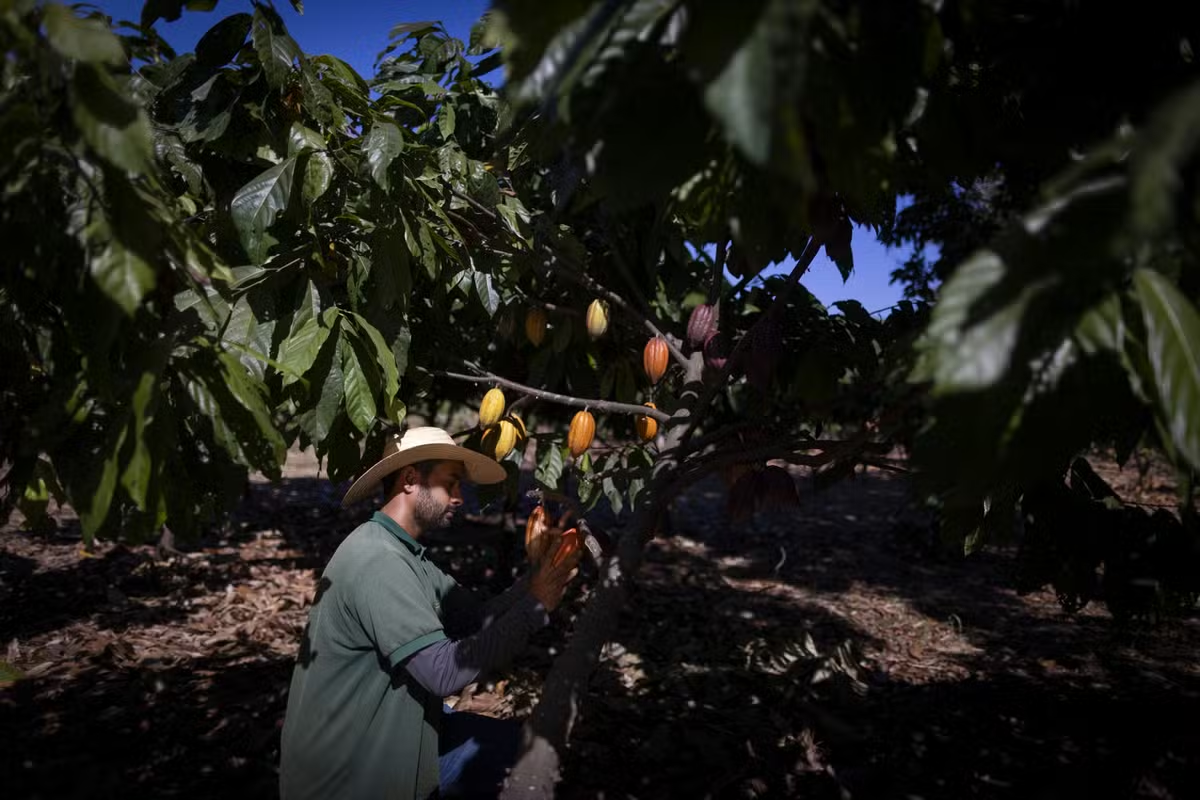
Combining conservation and development is the only path to economic development, says Patricia Ellen, co-founder of AYA Earth Partners. Patricia Ellen is responsible for the study “Economic, commercial, human and financial diversity for Brazil’s ecological transformation”, which she attended at COP30 to demonstrate Brazil’s potential in the green economy. The study maps investment and job creation opportunities in strategic areas such as biofuels, carbon markets and critical minerals.
- COP30: Queen of Denmark visits Belém chocolate factory in recognition of efforts to tackle environmental issues
- video: A recording of Minister Celso Sabino and Krupila participating in a parade wearing animal costumes has gone viral on the network.
Calculations show that if Brazil invests in a green economy, it could increase GDP by more than $400 billion and create 10 million jobs by 2030. This economic transformation will create jobs, conserve biodiversity and produce to meet international demand.
— Brazil is becoming a powerhouse of a nature-based economy — Ellen said he was presenting the report at a climate seminar and would take it to COP30. — The COP is a showcase to the whole world, which is very useful because much of what is written here is based on the assumption that Brazil is a supplier of international demand.
In parallel to this study, a new platform will be unveiled at the COP to organize the best green employment and investment opportunities across Brazilian states. It will point out, for example, that the states of Mato Grosso, Minas, Bahia and Pará have made the biggest announcements regarding investments in sustainable aviation biofuels (Bio-SAF).
— The focus is on finding occupations related to this and starting to encourage the process of investing in skills and business. Individuals and small businesses can look for opportunities. How many job seekers today can imagine being able to think about biotechnology, forestry, biofuels engineers, or chemical process engineers? It gives color to this dream that is becoming a reality and makes the dream of a green economy a reality for Brazil.
This study focuses on seven chains essential to this transformation of the Brazilian economy. Important Minerals; Batteries and Electric Vehicles. Biohealth and superfoods. Circularity of plastics and textiles. Adaptation and green urban infrastructure. data center.
The analysis to identify the best investment opportunities was based on seven key criteria: global competitiveness, economic complexity, GDP generation potential, international demand, decarbonization capacity, and stage of technology development. According to the study, therefore, the area with the highest potential for growth, job creation and solutions to climate change is bioSAF. This is mainly due to the large demand for this product from abroad and the large supply from Brazil of raw materials for its production, such as soybeans, corn, and sugar cane.
But Ellen explains that international coordination is still needed when it comes to bioenergy. She cited as an example the fact that the world’s main certification bodies for these biofuels do not yet cover Brazilian products and are still dependent on producing reliable data and demonstrating good environmental practices.
Green infrastructure is the biggest bottleneck
According to the study, the area with the biggest bottlenecks, and therefore the need for further investment, is in green infrastructure to help resist extreme weather events, known as urban resilience to climate change. COP30 President Andre Correa do Lago himself said at the Green Cities Seminar two months ago that Brazil still faces greater challenges in achieving the Sustainable Development Goals, especially with urban infrastructure issues. This topic is one of the COP’s priorities.
— The area that needs the most investment is climate resilience. And we have shown that there are positive returns on this adaptation agenda. However, Patricia Ellen says this will require huge investments, so mechanisms such as regional and international public-private partnerships need to be promoted.
In times of global geopolitical crisis, international partnerships may seem difficult. Therefore, the expert explains that the creation of “green corridors”, as she calls these partnerships, is an opportunity for Brazil to establish itself in the international market.
— There was COP30, Brics, and G20. Being at the center of diplomatic discussions is a great opportunity to strengthen global and regional agreements and maximize access to international demand.
Another important point raised in this study is that the green economy is also a way to neutralize the job loss crisis that may arise with the advent of artificial intelligence. This is because new jobs will be created and various qualifications will be required. According to the study, the new economic model could create up to 28 million new job opportunities, which would diversify Brazil’s economy, which is one of the biggest problems of the moment.
In this context, schools should teach green skills and doctors should promote biohealth, the researchers said. The report thus proves that economic development and environmental protection go hand in hand, says Patricia Ellen.
— will be more assertive than walking together. Today, ecosystem transformation is not only the most urgent way to address forest and climate protection; That’s the only way we can reach economic prosperity. As well as the climate crisis, impending technological change is making the need for alternative jobs and incomes for our people even more urgent. It’s not an ideological or political issue. This is not a discussion for a sustainability compliance team. This is a manager’s strategy and we need to create this sense of urgency.



